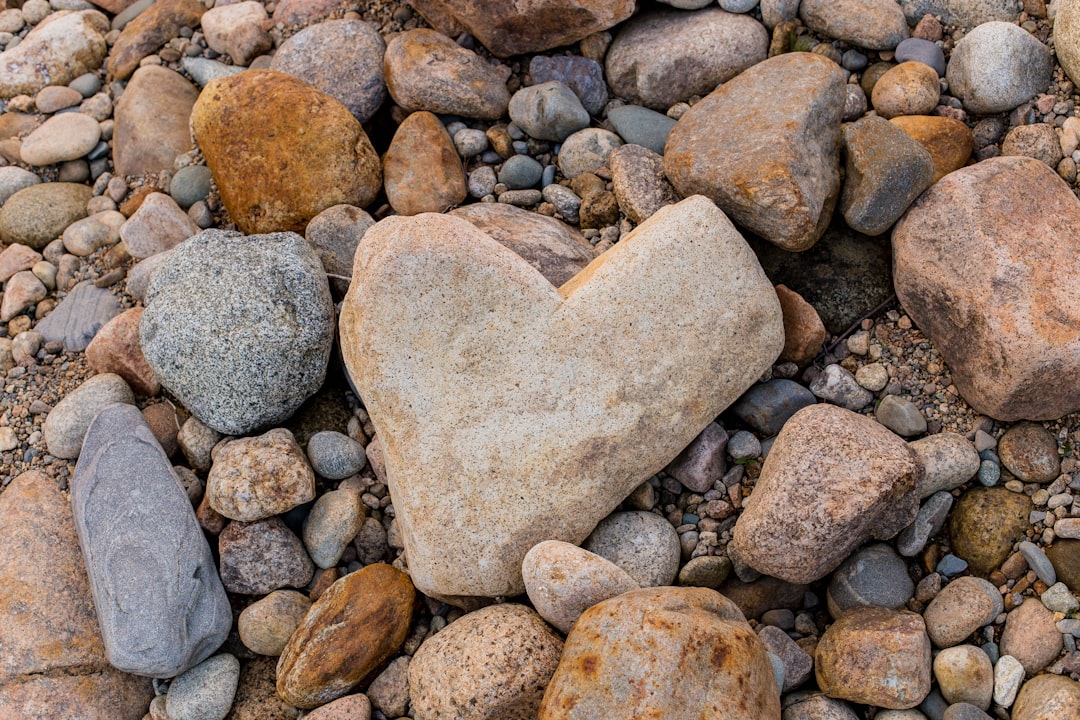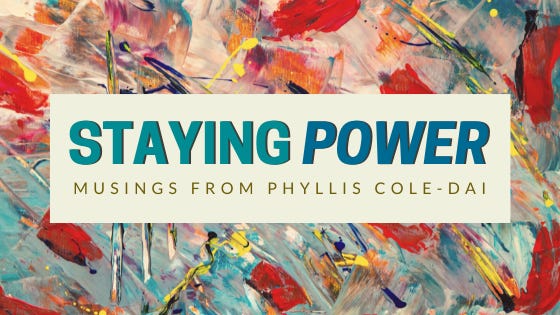“Two Stones of Goodbye”
In my dream, I’m visiting a dear friend whom I don’t often get to see. Each hour of our time together is precious.
As our reunion is nearing its unwelcome end, we hear a soft knock on the door. Answering, we find Katie, an itty-bitty angel, not even five feet tall. In waking life, I know her as a woman in her late eighties, a mother of twelve, a longtime hospital chaplain, a lover of the arts. Her short-term memory has turned into a sieve, too holey to hold much of anything anymore. But her heart remains a huge earthen bowl, capable of holding the world.
Standing there in my dream, knobbly hands clasped in front of her, Katie doesn’t ask to come inside. She’s on a mission.
“I’ve been sent here by the Powers,” she says, “to recite an ancient poem in celebration of the goodbye”—a reference to my looming departure from my friend.
Katie proceeds to declaim the poem from memory. As she speaks, her wrinkled face is full of light. Like an old-time classical singer, she keeps her hands clasped at her midriff, elbows out at her sides, expanding her petite chest to achieve more resonance and volume. She sounds like herself, only stronger, her bird-like voice expressive and resolute.
Amazingly, despite her memory issues, Katie hasn’t yet stumbled on a single word of the poem.
She isn’t reciting from memory, I realize suddenly. The invisible Powers are laying upon her heart the words she should speak.
The doorway where the three of us stand is a liminal place—a threshold where the unknown reveals something of itself and makes possible a tough but necessary transition. The poem suffuses the air, transforming my sadness. Until now, I’ve never thought of goodbyes as occasions for celebration. I much prefer hellos.
But “the Powers,” through their messenger Katie, are urging me to reconsider. Their invitation to “celebrate the goodbye” is so compelling, it startles me awake in my bed.
The words of the ancient poem don’t survive my waking.
Today, in gratitude to “the Powers,” in honor of Katie, and for the sake of all those dear ones from whom you and I must sometimes take our leave, I offer you this brief new poem in the spirit of that lengthy, olden one whose lines I can’t remember. Perhaps we all carry some version of that ancient poem inside us. It’s simply waiting there to be found, and lived.
TWO STONES
So let me leave a small, smooth stone
In the place of our goodbye, to say
I’ve been here, and belonged a while.
And lay in my empty palm another stone,
To say you’ve received and blessed me.
Our exchange is even, and forever.
Where I go now, I carry you with me.
Where you remain, I rest. We are
Together apart, at home in each other
On the keen edge of the world’s blade.
The Gentle Nudge
Join other Rafters this week for . . .
Creatives’ Coffee (Zoom, Wednesday, 4:00-5:30PM Central, at this link)
Poetry Pick-Me-Up (Zoom, Thursday, 12:00-1:00PM Central, at this link)





Your poem is beautiful, Phyllis. Strongly reminiscent of the Jewish ritual of leaving small rocks atop the headstones of the departed following a cemetery visit.
The last time I did this was on a solitary winter trip, a dozen years ago, from Ohio to NYC, to say goodbye to a dear cousin with whom I grew up -- a former marathoner dying of congestive heart failure, and now in hospice care. While there, I took a morning for myself, driving to Long Island to find the graves (no easy task in a NY cemetery, even more packed than 5th Avenue at Christmas) of my parents, buried alongside a group of my uncles and aunts. (Still the closest of families.) As a walked up and down the interminably long aisles of markers, the crisp sunny day abruptly turned into an unexpected, gusty snowfall -- not forecast, or I would have worn more than a light jacket -- with large, heavy flakes blown about wildly by fierce winds. In no time, the stones were obscured by the snow, and I wondered whether I would succeed in locating my long-lost relatives.
With ungloved, frigid hands, I brushed aside snow on several stones, to no avail. Then, suddenly: paydirt. There they all were, waiting to be found. I said a prayer for all, and for each, and then said goodbye for what I was sure was my final farewell. But instead of stones to leave at the gravesite to confirm my visit, I had brought something different for the occasion.
One by one, I placed handfuls of seashells -- cockles, scallops, cowries, whelks, and a lone sand dollar -- on the Schwarz, Bazer, Weinstock, Bell, and Bernstein headstones. The winds had abated and the snowstorm had gentled, and the shells sat securely in their new homes, headstone ledges looking out at a crowded, oceanless beach of distant memories.
For now, at least.
For nothing material lasts forever in the same physical form.
Phyllis, I'm grateful for your heart and soul, and for the images that you revived.
Best wishes to you and your family. Happy Thanksgiving.
Jack
This is beautiful and perfectly timed, for me. Thank you, Phyllis. How fine that we have this life, this breath, to share with one another. My Grandfather always said, “We’ll see you!”, instead of goodbye… feels like the love can just keep going on a good roll, that way.